Prime Minister 's dispatch on speeding up the progress of arrangement, placement and handling of housing and land facilities after rearranging the organization of administrative apparatus and units at all levels
Prime Minister Pham Minh Chinh has just signed Official Dispatch No. 213/CD-TTg dated November 11, 2025 on accelerating the progress of arrangement, placement, and handling of housing and land facilities after rearranging the organization of administrative apparatus and units at all levels.

Speed up the progress of arranging and handling housing and land facilities after the organizational arrangement.
Telegram to Ministers, Heads of ministerial-level agencies, Government agencies; Chairmen of People's Committees of provinces and centrally run cities.
The dispatch clearly stated: Implementing the conclusions and directions of the Politburo and the Secretariat on the arrangement of the apparatus and administrative units according to the 2-level local government model, to ensure the effective arrangement, reorganization and handling of headquarters and public assets before, during and after the arrangement of the apparatus and administrative units, avoiding loss and waste of assets, ensuring facilities for agencies, organizations and units after the arrangement to operate continuously and smoothly, providing public services to people and businesses, in the past time, the Government, the Prime Minister and central agencies have issued many documents urging and guiding localities to review and develop plans for the arrangement, reorganization and handling of headquarters and public assets after the arrangement of the apparatus and administrative units at all levels. Localities have actively implemented the review, developed plans and issued plans to arrange, reorganize and handle headquarters and public assets under local management according to central guidance. However, the number of surplus real estate facilities that need to be further handled is still large, requiring strong and effective leadership, direction and implementation by Party committees and authorities at all levels.
To speed up the progress of handling housing and land facilities after rearranging the organizational apparatus and administrative units at all levels, based on the conclusions of the Politburo and the Secretariat in Conclusion No. 202-KL/TW dated October 31, 2025 and the direction of the Standing Secretariat in Official Dispatch No. 18505-CV/VPTW dated October 27, 2025 of the Party Central Office, the Prime Minister requests the Chairmen of the People's Committees of provinces and centrally run cities, Ministers and Heads of relevant central agencies to focus on implementing the following tasks and solutions:
1. Chairman of People's Committee of provinces and centrally run cities:
a) Direct the strict implementation of the conclusions and directions of the Politburo and the Secretariat on the requirements to review and develop plans for management, use, and handling of headquarters and public assets after restructuring the apparatus and administrative units at all levels, ensuring compliance with regulations, efficiency, and no omissions, losses, waste, or negativity.
Arrange, arrange, and handle housing and land facilities to ensure that the physical facilities (headquarters) for the apparatus follow the new model and the activities of cadres, civil servants, public employees, and workers are carried out normally, without interruption, without affecting the provision of public services, and the settlement of administrative procedures for people and businesses; in the process of arranging, priority is given to the purposes of health, education and training, culture, sports, commune police headquarters and other public purposes, ensuring efficiency, in accordance with local planning and State legal regulations. In case there is still surplus, there must be a plan to put it into exploitation and use to serve socio-economic development goals, ensuring strictness, economic efficiency, compliance with legal regulations, and no loss or waste.
For housing and land facilities that have been approved and have had plans for recovery and transfer to local management and handling decided, the People's Committees of provinces and centrally run cities shall continue to direct the agencies and units assigned to receive, manage and handle after recovery and transfer to promptly develop plans for exploitation and handling of assets in accordance with the provisions of law to promptly put the assets into exploitation or handle them in accordance with the provisions of law, avoiding loss and waste.
In case of difficulties or problems in the process of arranging, planning and handling of housing and land facilities, promptly synthesize and report to the Ministry of Finance for guidance or amendments and supplements according to authority, and report to competent authorities to amend and supplement relevant legal provisions.
b) Immediately update and adjust provincial planning, land use planning, urban and rural planning and other relevant planning according to authority or direct specialized agencies and commune-level authorities to immediately update and adjust planning according to authority after transferring and converting the functions of houses and land to be used as offices, career facilities, medical, educational, cultural, sports facilities, public, defense and security purposes.
For surplus housing and land facilities after being prioritized for the above purposes, which are put into exploitation and use to serve socio-economic development goals (through land allocation and land lease according to land law), they must be consistent with land use planning.
In case of difficulties or problems in the process of adjusting land use planning, urban and rural planning and specialized planning affecting the progress of asset handling, promptly synthesize and report to the Ministry of Construction, the Ministry of Agriculture and Environment, and the specialized management ministry for guidance or amendments and supplements according to authority, and report to competent authorities for amendments and supplements to relevant legal provisions.
c) Directing the continued review and complete and timely statistics of surplus housing and land facilities that need to be handled; renovating and purchasing public assets according to the provisions of law and instructions of the Ministry of Finance and central agencies.
d) Strengthen management, inspection, examination and supervision of the arrangement, organization and handling of headquarters and public assets of agencies, organizations and units under management.
2. The Ministry of National Defense and the Ministry of Public Security shall immediately update and adjust the national defense land use planning and security land use planning according to their authority after transferring and converting the functions of houses and land to be used as offices, career facilities, medical, educational, cultural, sports facilities, public purposes, or after receiving the transfer of other houses and land to be used for national defense and security purposes.
3. The Ministry of Construction, the Ministry of Agriculture and Environment and other specialized management ministries shall guide the updating and adjustment of planning according to Conclusion No. 202-KL/TW; regularly review and summarize difficulties and problems of localities in the process of adjusting planning under the state management function of the Ministry to promptly guide; if necessary, report to competent authorities to amend and supplement relevant legal provisions.
4. The Ministry of Finance shall continue to strengthen inspection, urging, and guiding localities in arranging, organizing, and handling headquarters and public assets after restructuring the apparatus and administrative units, ensuring compliance with the direction of competent authorities and legal regulations; publicize information on the progress of arranging and handling headquarters and public assets of each locality on the Ministry of Finance's Electronic Information Portal and mass media.
5. Ministries and agencies, according to their assigned functions and tasks, strictly implement the conclusions and directions of the Politburo and the Secretariat on the requirements to review and develop plans for management and use of headquarters and public assets after restructuring the apparatus and administrative units at all levels, ensuring compliance with regulations, efficiency, no omissions, losses, waste, or negativity; report to competent authorities to amend and supplement relevant legal regulations to handle houses and land facilities with problems within the scope and field of monitoring.
Decision to adjust the central budget public investment estimate and plan for 2025 between the Ministry and localities; assign the central budget public investment estimate and plan for 2025 corresponding to the increased central budget revenue in 2022 and 2023.
Deputy Prime Minister Ho Duc Phoc has just signed Decision No. 2471/QD-TTg of the Prime Minister dated November 11, 2025 on adjusting the estimates and plans for public investment from the central budget in 2025 between ministries and localities; assigning estimates and plans for public investment from the central budget in 2025 corresponding to the increased central budget revenue in 2022 and 2023.

Adjusting the budget estimate and plan for public investment from the central budget in 2025.
Specifically, Assign additional estimates and plans for public investment from the central budget in 2025 from increased central budget revenue in 2022 and 2023 to the Ministry of Public Security, the Ministry of Construction and Tuyen Quang province.
At the same time, adjust the estimates and plans for public investment from the central budget in 2025 of the Ministry of Industry and Trade and localities after the arrangement and merger as follows:
- Adjusting the estimate and plan for public investment with central budget capital in 2025 down by VND 77,427,175 billion of the Ministry of Industry and Trade and 28 localities to supplement the estimate and plan for public investment with central budget capital in 2025 of 23 localities respectively.
- Adjusting the estimate and plan for public investment with foreign central budget capital in 2025 by VND 5,396,587 billion of 23 localities to supplement the estimate and plan for public investment with central budget capital in 2025 of 19 localities.
Detailed data on adjustments and supplements to the central budget public investment plan in 2025
Based on the above-mentioned assigned and adjusted estimates and plans for public investment from the central budget in 2025 and the contents of Submission No. 44/TTr-CP dated October 11, 2025, Submission No. 923/TTr-CP dated October 14, 2025 of the Government submitted to the National Assembly Standing Committee, ministries, central and local agencies shall allocate detailed estimates and plans for public investment from the central budget in 2025 for tasks and projects under the medium-term public investment plan for the period 2021 - 2025 in compliance with the provisions of the Law on Public Investment, the Law on State Budget and relevant legal provisions.
Relevant ministries and localities are fully responsible to the Prime Minister, inspection, examination and auditing agencies and relevant agencies for the allocation of additional central budget estimates and public investment plans for 2025; the accuracy of reported information and data, list of tasks and projects and the amount of capital allocated to each task and project must comply with the provisions of law.
This Decision comes into force from the date of signing (November 11, 2025).
Decision stipulating principles, criteria, and norms for allocating central budget capital and the proportion of counterpart capital from local budgets to implement the National Target Program on Cultural Development for the 2025-2035 period.
Deputy Prime Minister Ho Duc Phoc signed Decision No. 41/2025/QD-TTg stipulating principles, criteria, and norms for allocating central budget capital and the proportion of counterpart capital from local budgets to implement the National Target Program on Cultural Development for the 2025-2035 period.

Allocate capital to implement the Cultural Development Target Program.
Capital allocation principles
The Decision stipulates that capital allocation must comply with the provisions of the Law on Public Investment, the Law on State Budget, Resolution No. 70/2025/UBTVQH15 dated February 7, 2025 of the Standing Committee of the National Assembly stipulating principles, criteria and norms for allocating public investment capital from the state budget for the period 2026 - 2030 and relevant legal documents.
Closely follow the specific goals, targets and criteria of the Program for the 2026 - 2030 period, ensuring that it does not exceed the total development investment capital and career capital of the Program approved by competent authorities.
Focus on key, key and sustainable investments, focusing on the contents that need to be prioritized to create breakthroughs in cultural development: Important and urgent tasks in preserving and promoting cultural heritage values, comprehensive human development; perfecting the system of cultural institutions at all levels and a number of tasks that the State needs to invest in to lead, orient, control, and create a foundation to attract the whole society to participate in cultural development, especially tasks of developing cultural industries; tasks of innovation and digital transformation in the cultural field; supporting localities with difficult socio-economic development conditions.
Based on the total central budget support capital (including development investment capital and career capital) and local budget capital, the People's Council of the province or centrally-run city decides on the allocation, ensuring consistency, non-overlap, non-duplication in scope, objects, content, and activities with other national target programs. Ensure centralized management, unity in objectives, mechanisms, and policies; implement decentralization in investment management according to the provisions of law, create initiative for ministries and central agencies and thoroughly decentralize to local authorities.
Principles of central budget support for local budgets to implement the Program
The mechanism to support the central budget for local budgets to implement the Program is based on the following principles:
1- The central budget prioritizes support for localities receiving additional balance from the central budget, especially localities in the Northern Midlands and Mountains, the Central Highlands, and localities receiving additional balance from the central budget of 60% or more.
2- For localities that do not receive additional balancing from the central budget, capital support from the central budget is only provided for a number of specific tasks decided by the Prime Minister.
3- The ratio of additional balance/total balanced local budget expenditure is determined according to the 2026 state budget revenue and expenditure estimates decided by the National Assembly.
Central budget capital allocation criteria
The Decision stipulates the central budget allocation coefficient for localities implementing the Program as follows:
Criteria and allocation coefficients for localities according to social objects
Particularly disadvantaged communes and special zones: Coefficient 6.0.
Remaining communes and special zones: Coefficient 4.0.
Wards: Coefficient 2.0.
Criteria and allocation coefficients for priority localities
Localities with the ratio of additional balance/total local budget balance expenditure from 60% or more: Coefficient 150.
Localities in the Northern Midlands and Mountains and the Central Highlands have a ratio of additional balance/total local budget balance expenditure below 60%: Coefficient 100.
The localities of the Northern Midlands and Mountainous Region and the Central Highlands include provinces of the Northern Midlands and Mountainous Region and the Central Highlands Region that are not merged and provinces merged from at least one locality of the Northern Midlands and Mountainous Region and the Central Highlands Region according to the socio-economic zoning in Resolution No. 81/2023/QH15 of the National Assembly on the National Master Plan for the 2021-2030 period, with a vision to 2050.
The remaining localities have a ratio of additional balance/total local budget balance expenditure below 60%: Coefficient 60.
Localities do not receive additional balance from the central budget, only capital support from the central budget for some specific tasks.
Criteria and allocation coefficients for localities according to population size
Localities with population under 1 million people: Coefficient 30.
Localities with population from 1 million to under 2 million people: Coefficient 50.
Localities with population from 2 million to under 3 million people: Coefficient 80.
Localities with a population of 3 million or more: Coefficient 100.
Criteria and allocation coefficients for localities according to area scale
Localities with an area of less than 5,000 km²: Coefficient 20.
Localities with an area from 5,000 km² to less than 10,000 km²: Coefficient 40.
Localities with an area from 10,000 km² to less than 15,000 km²: Coefficient 50.
Localities with an area of 15,000 km² or more: Coefficient 80.
Criteria and allocation coefficients for localities according to historical - cultural relics and scenic spots
Special national monument: Coefficient 5.0.
National monument: Coefficient 2.0.
Central budget capital allocation norms
Central budget capital allocation norms for ministries and central agencies:
Allocation norms for career capital: Based on proposals from ministries and central agencies to implement the goals, targets, tasks, activities of the Program and the allocation principles in this Decision, the Ministry of Culture, Sports and Tourism shall synthesize and coordinate with ministries and central agencies to develop a plan to allocate central budget career capital to ministries and central agencies annually with a norm not exceeding 10% of the total budget for career capital of the Program, and send it to the Ministry of Finance according to regulations.
Development investment capital allocation norms: Based on proposals from ministries and central agencies to implement the goals, targets, tasks, and activities of the Program and the allocation principles in this Decision, the Ministry of Culture, Sports and Tourism synthesizes and develops a plan to allocate 5-year and annual development investment capital with a norm not exceeding 10% of the total development investment capital budget of the Program, and sends it to the Ministry of Finance according to regulations.
Allocate central budget capital of the Program to ministries and central agencies to carry out management, direction, guidance, and organization of implementation of the Program's components and tasks approved by competent authorities.
Central budget capital allocation norms in localities :
Based on the development investment capital plan and career capital supported from the central budget notified by competent authorities and the actual conditions of each locality, the People's Committees of provinces and centrally run cities shall develop specific capital allocation plans for levels (provinces, communes) to implement the contents of the Program, submit them to the People's Councils of the same level for decision, ensuring effective implementation of the allocated capital according to the principles of priority support prescribed above, specifically:
- For the development investment capital plan and the career capital plan supported by the central budget, arrange capital to implement the following contents: Developing Vietnamese people with good personalities and lifestyles; building a healthy and civilized cultural environment, developing a synchronous and effective infrastructure system, landscape, and cultural institutions; improving the effectiveness of information, propaganda, and cultural education; preserving and promoting the value of national cultural heritage; promoting the development of literature and arts; developing cultural industries; promoting digital transformation and application of scientific and technological achievements in the cultural field; developing cultural human resources; international integration, absorbing the quintessence of human culture and spreading Vietnamese cultural values to the world; Strengthen the monitoring and evaluation of the Program implementation, improve the capacity to implement the Program, communicate and propagate about the Program, manage the implementation of the Program at all levels according to regulations and other contents within the framework of the Program.
- State budget expenditure tasks within the framework of the Program are arranged from two sources: public investment expenditure and regular expenditure, implemented in accordance with the provisions of the Law on Public Investment and the Law on State Budget.
For projects under the Program using public investment capital from the central budget, the procedures for investment decisions shall be implemented in accordance with the law on public investment or according to the special mechanism issued by the Government in organizing the implementation of small-scale construction investment projects, with non-complicated techniques and current legal documents.
This Decision takes effect from November 10, 2025.
Announcement of the conclusion of Deputy Prime Minister Pham Thi Thanh Tra at the working session with the Standing Committee of Lao Cai Provincial Party Committee
The Government Office issued Notice No. 608/TB-VPCP dated November 11, 2025, concluding the conclusion of Deputy Prime Minister Pham Thi Thanh Tra at the working session with the Standing Committee of Lao Cai Provincial Party Committee.

Deputy Prime Minister Pham Thi Thanh Tra works with Lao Cai province - Photo: VGP/Thu Giang
The notice stated, In the first 10 months of 2025, despite many major fluctuations and facing many difficulties and challenges, the Party Committee, government and people of Lao Cai province have united, shown high determination, made great efforts, overcome difficulties, resolutely and effectively implemented the tasks and solutions set out and achieved positive and comprehensive results in socio-economic development, ensuring national defense and security.
However, in addition to the achieved results, the socio-economic situation in the first 10 months of 2025 of Lao Cai province still has limitations and difficulties such as: The development of the industrial sector has not met expectations; import and export has decreased sharply compared to the same period; the situation of natural disasters and epidemics is complicated and unpredictable; the internal difficulties of the two provinces before the merger such as: the economic scale is still small, labor productivity and competitiveness are low, infrastructure is not synchronized, human resources do not meet development requirements... are slow to improve.
Promote the implementation of strategic breakthroughs, focusing on administrative reform.
The Deputy Prime Minister requested the Standing Committee of Lao Cai Provincial Party Committee to focus on leading and directing the drastic, synchronous and effective implementation of the set goals, tasks and solutions in all fields in the province in order to comprehensively complete the tasks of 2025, creating a foundation for the coming years; in which, the following key contents should be noted:
1. Identify more fully, deeply and comprehensively the potential differences, outstanding opportunities and competitive advantages of the locality after the merger; on that basis, promptly review and adjust the development planning and major development orientations of the Province after the formation of the new administrative unit.
2. Based on the Political Report and Resolution of the 1st Provincial Party Congress, term 2025 - 2030, urgently develop programs, plans, policy mechanisms and key projects for breakthrough development in the coming time; at the same time, update, supplement and adjust according to the Resolution of the 14th National Party Congress.
3. Focus on leadership and direction to achieve the highest targets and tasks of socio-economic development in 2025, in which priority is given to promoting economic growth (ensuring the completion of the Government's assigned targets); increasing state budget revenue (striving to achieve and exceed the central budget and provincial budget); promoting disbursement of public investment capital (striving to disburse 100% of the public investment capital plan in 2025) and targets on economic, cultural and social restructuring.
4. Review and promote the implementation of strategic breakthroughs, focusing on administrative reform, especially administrative procedures; urgently develop policy mechanisms to make the most of and synchronize with the policies issued by the central government; focus on strongly promoting science and technology, innovation and digital transformation, building digital government, digital citizens, digital society, digital economy...
Continue to review, evaluate and restructure the existing staff.
5. Review and develop a medium-term public investment plan for the 2026 - 2030 period, ensuring focused and key investments, prioritizing the development of strategic infrastructure, especially connecting transport, digital infrastructure and social sectors (striving to build a number of typical projects that are highlights of this sector in the coming term), education and training and human resource development.
6. Maintain national security and defense; ensure social order and safety; strengthen the prevention and fight against corruption, waste and negativity. Effectively carry out foreign affairs activities, build a border of peace, friendship, cooperation and development.
7. Regarding 2-level local government:
- Continue to thoroughly grasp, create a change in operational thinking, end the old administrative thinking, upgrade to "Local governance" thinking, take "Creation and service" administration as the goal, especially focus on the pillars of "Promoting community autonomy and self-management and strengthening dialogue and accountability mechanisms".
- Continue to review, improve and stabilize the organizational structure, proactively follow the newly issued and upcoming Government Decrees for timely implementation; continue to ensure smooth and effective operation of the two-level government in the coming time.
- Continue to review, evaluate, and restructure the existing staff. Research and find breakthrough solutions in recruitment, while continuing to streamline and resolve policies for cases that do not meet job requirements according to Decree No. 154/2025/ND-CP of the Government regulating staff streamlining; resolutely not be lenient or avoid. Proactively arrange resources and budget to organize training and development for commune-level staff, ensuring effectiveness and meeting practical work requirements.
- Continue to pay attention to and prioritize resources for investment in infrastructure and working equipment for the commune level. In particular, identify digital transformation as a mandatory and urgent task for all cadres, civil servants and public employees of the province; at the same time, promote the movement of "popular digital education" in society and all classes of people.
Resolutely resolve problems to speed up site clearance for the Lao Cai - Hanoi - Hai Phong railway project.
Regarding the proposal to support capital and have preferential policies to encourage and attract investment in key local projects, the Deputy Prime Minister assigned the People's Committee of Lao Cai province to review and research and develop a project on specific mechanisms and policies for the development of Lao Cai province (including preferential policies to encourage and attract investment in key projects), and report to competent authorities for consideration and decision in the second quarter of 2026.
Regarding the proposal to add the Son La - Lao Cai - Phu Tho - Tuyen Quang - Thai Nguyen expressway planning to the Road Network Planning for the 2021 - 2030 period, with a vision to 2050, the Deputy Prime Minister assigned the Ministry of Construction to preside over and coordinate with relevant ministries, agencies and localities to review and report to the Prime Minister before December 31, 2025.
Regarding the proposal for site clearance of the Lao Cai - Hanoi - Hai Phong railway construction investment project, the Ministry of Construction shall preside over the study of the province's proposal, direct relevant units and guide Lao Cai province to implement it according to its authority in November 2025; thoroughly handle the problems so that the locality can speed up site clearance for project implementation.
Approving the election results and removing the Vice Chairman of Thanh Hoa Provincial People's Committee
On November 11, 2025, Permanent Deputy Prime Minister Nguyen Hoa Binh signed the Prime Minister's Decisions on approving the election results and dismissal of the Vice Chairman of Thanh Hoa Provincial People's Committee.
Specifically, in Decision No. 2468/QD-TTg, the Prime Minister approved the election results for the position of Vice Chairman of Thanh Hoa Provincial People's Committee for the 2021-2026 term for Mr. Le Quang Hung, member of the Provincial Party Standing Committee, Director of the Department of Finance.
In Decision No. 2469/QD-TTg, the Prime Minister approved the election results for the position of Vice Chairman of Thanh Hoa Provincial People's Committee for the 2021-2026 term for Mr. Cao Van Cuong, member of the Provincial Party Executive Committee, Director of the Department of Agriculture and Environment.
At the same time, in Decision No. 2467/QD-TTg, the Prime Minister approved the results of the dismissal of Mr. Nguyen Van Thi from the position of Vice Chairman of Thanh Hoa Provincial People's Committee for the 2021-2026 term.
In Decision No. 2470/QD-TTg, the Prime Minister approved the results of the dismissal of Mr. Le Duc Giang from the position of Vice Chairman of Thanh Hoa Provincial People's Committee for the 2021-2026 term.
The above Decisions take effect from November 11, 2025.
Personnel change of the Chairman of the Vietnam National Commission for UNESCO
Deputy Prime Minister Bui Thanh Son signed Decision No. 2457/QD-TTg of the Prime Minister on personnel changes of the Chairman of the Vietnam National Commission for UNESCO.
According to the Decision, the Prime Minister appointed Mr. Ngo Le Van, Deputy Minister of Foreign Affairs and Chairman of the Vietnam National Commission for UNESCO, to replace Mr. Nguyen Minh Vu.
This Decision comes into force from the date of signing (November 7, 2025)./.
Source: https://baochinhphu.vn/chi-dao-dieu-hanh-cua-chinh-phu-thu-tuong-chinh-phu-ngay-11-11-2025-102251111193548397.htm




![[Photo] Chu Noodles - the essence of rice and sunshine](https://vphoto.vietnam.vn/thumb/1200x675/vietnam/resource/IMAGE/2025/11/11/1762846220477_ndo_tl_7-jpg.webp)


![[Photo] Prime Minister Pham Minh Chinh receives Lao Minister of Labor and Welfare Phosay Sayasone](https://vphoto.vietnam.vn/thumb/1200x675/vietnam/resource/IMAGE/2025/11/11/1762872028311_dsc-2246-jpg.webp)














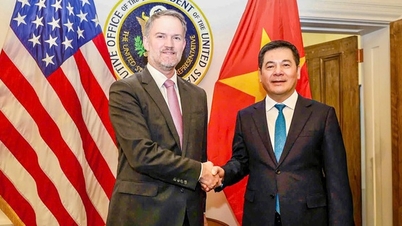























































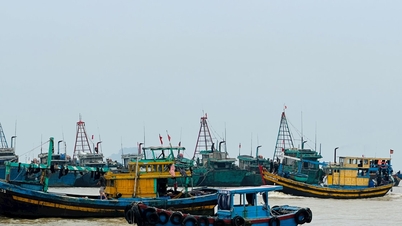

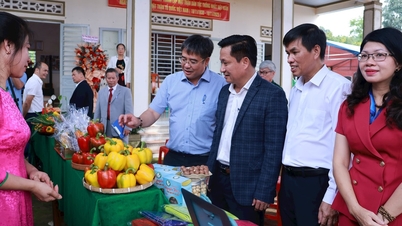
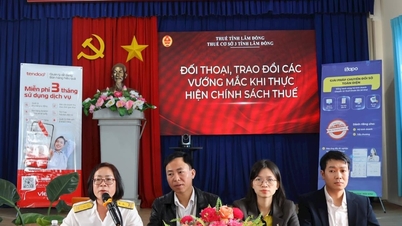
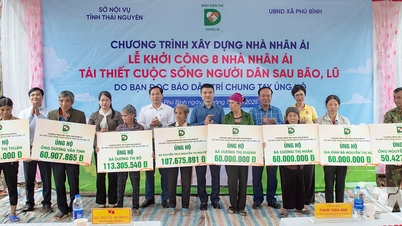








![Dong Nai OCOP transition: [Article 3] Linking tourism with OCOP product consumption](https://vphoto.vietnam.vn/thumb/402x226/vietnam/resource/IMAGE/2025/11/10/1762739199309_1324-2740-7_n-162543_981.jpeg)








Comment (0)